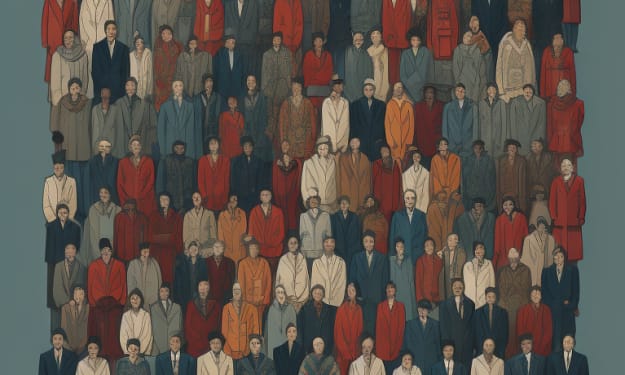
Education, considered the cornerstone of societal progress, has been a constant throughout human history. However, the structures and methodologies within educational institutions have evolved at a pace that, for some, might seem surprisingly slow. In this exploration, we unravel the complexities behind the enduring nature of traditional school systems, questioning why schools have barely changed despite the rapid transformations witnessed in other spheres of life.
Foundations of Tradition:
The roots of traditional education systems can be traced back centuries, with their foundations deeply embedded in historical practices. The model of a teacher imparting knowledge to a group of students in a classroom setting has proven resilient over time. The historical success of this approach, combined with societal expectations and cultural norms, has contributed to the resistance against radical changes in educational structures.
Bureaucratic Inertia:
The bureaucratic nature of educational systems, especially in public institutions, contributes significantly to the inertia in adopting new methodologies. Educational policies, curriculum changes, and structural reforms often face bureaucratic hurdles, making it challenging to implement swift and impactful transformations. The layers of approval required and the resistance to change within administrative structures contribute to the perpetuation of traditional models.
Resistance to Risk:
Education is inherently tied to the future, and the prospect of experimenting with untested methods can be daunting for educators and policymakers. The fear of failure and the potential consequences on students' development create a hesitancy to deviate from proven, albeit traditional, approaches. The emphasis on standardized testing further reinforces a risk-averse culture within educational systems.
Economic Realities:
The economic aspect of education plays a pivotal role in its resistance to change. Budget constraints, resource allocation, and the costs associated with implementing new technologies or teaching methodologies become barriers to innovation. Traditional systems, despite their perceived limitations, often prove cost-effective and, therefore, remain a default choice for financially strained institutions.
Societal Expectations:
Societal expectations regarding the purpose and outcomes of education also contribute to the perpetuation of traditional models. The long-standing belief that education should prepare individuals for the workforce and societal responsibilities influences the design and goals of educational systems. Shifting away from these deeply ingrained expectations requires not only systemic changes but also a societal reevaluation of the purpose of education.
Teacher Training and Pedagogy:
The training of teachers and the prevailing pedagogical methods further cement the status quo. Many educators are trained within the frameworks of traditional models, focusing on lecture-based teaching, standardized testing, and discipline-specific expertise. The inertia within teacher training programs to adapt to new methodologies hinders the widespread adoption of progressive educational approaches.
Lack of Technological Integration:
While technology has revolutionized various aspects of modern life, its integration into education has been uneven. Many schools struggle to incorporate technology effectively into the learning process due to issues like inadequate infrastructure, lack of training, and concerns about screen time. The result is a slow and partial adoption of digital tools, leaving the fundamental structure of education largely untouched.
Parental Expectations:
Parental expectations regarding education form a critical component of the equation. Parents, often products of traditional education themselves, tend to prefer familiar structures and methods when it comes to their children's education. This collective preference creates a feedback loop where schools, aiming to satisfy parental expectations, perpetuate traditional systems.
Resistance to Change in Higher Education:
The inertia isn't limited to primary and secondary education; it extends into higher education as well. Universities and colleges, despite facing calls for educational reform, often maintain traditional models. Factors such as established academic hierarchies, research-oriented priorities, and the emphasis on tenure track positions contribute to the preservation of conventional structures.
Cultural Resistance to Change:
Cultural factors, deeply embedded in societal norms, contribute significantly to the resistance to change in education. Prevailing notions of what an "ideal" education should look like, influenced by cultural values and historical perspectives, create a resistance to depart from traditional models. Changing educational paradigms would require challenging not just educational structures but societal beliefs about learning and knowledge acquisition.
Moving Forward:
While the persistence of traditional school systems is evident, there are pockets of innovation and reform worldwide. Alternative education models, homeschooling movements, and experimental approaches showcase the potential for change. The ongoing dialogue about the purpose of education, the role of technology, and the need for more holistic learning experiences indicates a growing awareness of the limitations within traditional systems.
In moving forward, a nuanced approach is required. Reforms need to consider the unique challenges posed by bureaucratic structures, economic constraints, and cultural expectations. Embracing change requires collaboration among educators, policymakers, parents, and students to create an educational landscape that adapts to the needs of a rapidly evolving world while respecting the foundational principles of effective learning.
About the Creator
Kei Ben
A fresh read goes a long way.






Comments
Kei Ben is not accepting comments at the moment
Want to show your support? Send them a one-off tip.